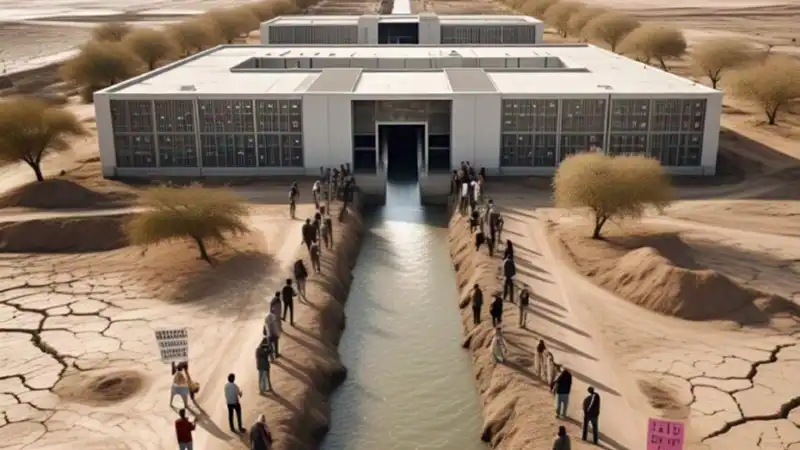
ENVIR ST 403 LEC 002
Monday/Wednesday, 2:30–3:45 p.m.
3 credits
Instructor

Beth Tellman
Assistant Professor of Environmental Studies
beth.tellman@wisc.edu
Course Description
People and the planet are changing at unprecedented speeds — from transgressing planetary boundaries, to increased extreme weather events, to the continued loss of ecosystems and biodiversity, and ever high levels of ocean heat and atmospheric warming. The time to make change and secure a sustainable future for all, is now.
Technology is moving just as fast — AI, sensors, and compute power is fundamentally changing society and economies — with accompanying profound ethical and even existential challenges.
This course will examine the role of AI in advancing sustainability science, as well as the ethical concerns the methods and energy required to enable it poses for people and the planet.
We will begin with foundations of machine learning for those with no prior experience, including classical machine learning (e.g., random forest), classical deep learning such as neural networks, convolutional neural networks (CNN) and long short-term memory networks (LSTMs), and newer AI approaches such as transformers, foundation models, and LLMs (Large Language models).
We will review applications of these models in seven domains of sustainability science, including global risks, earth systems, water management, ocean challenges, biodiversity, urbanization, and collective decision making.
The course will include several light programming exercises and labs or homework assignments in Python, but do not require prior programming experience. Homework labs may draw on common dataset types in sustainability science including satellite imagery, geospatial data, temporal climate data, photography, and large bodies of text such as news media and sustainability reports. Tutorials will be provided to those without prior Python experience to ensure it is accessible.
Students will be supported to work on a final project alone or in groups or pairs, to either review the application of AI (or its promise, pitfall, or potential if not yet implemented) in a sustainability domain or problem of their choice. Ambitious students or groups with programming experience or interest will be supported to pilot an AI model or application with instructor and TA support.
Students will leave the course understanding the main modalities of AI used in modern sustainability sciences, and how to review or assess the validity or usefulness of an AI application in the sustainability sciences to solve real problems for people and our planet.
Fulfills Environmental Studies
![]()
Theme
UW Designations
![]()
Intermediate